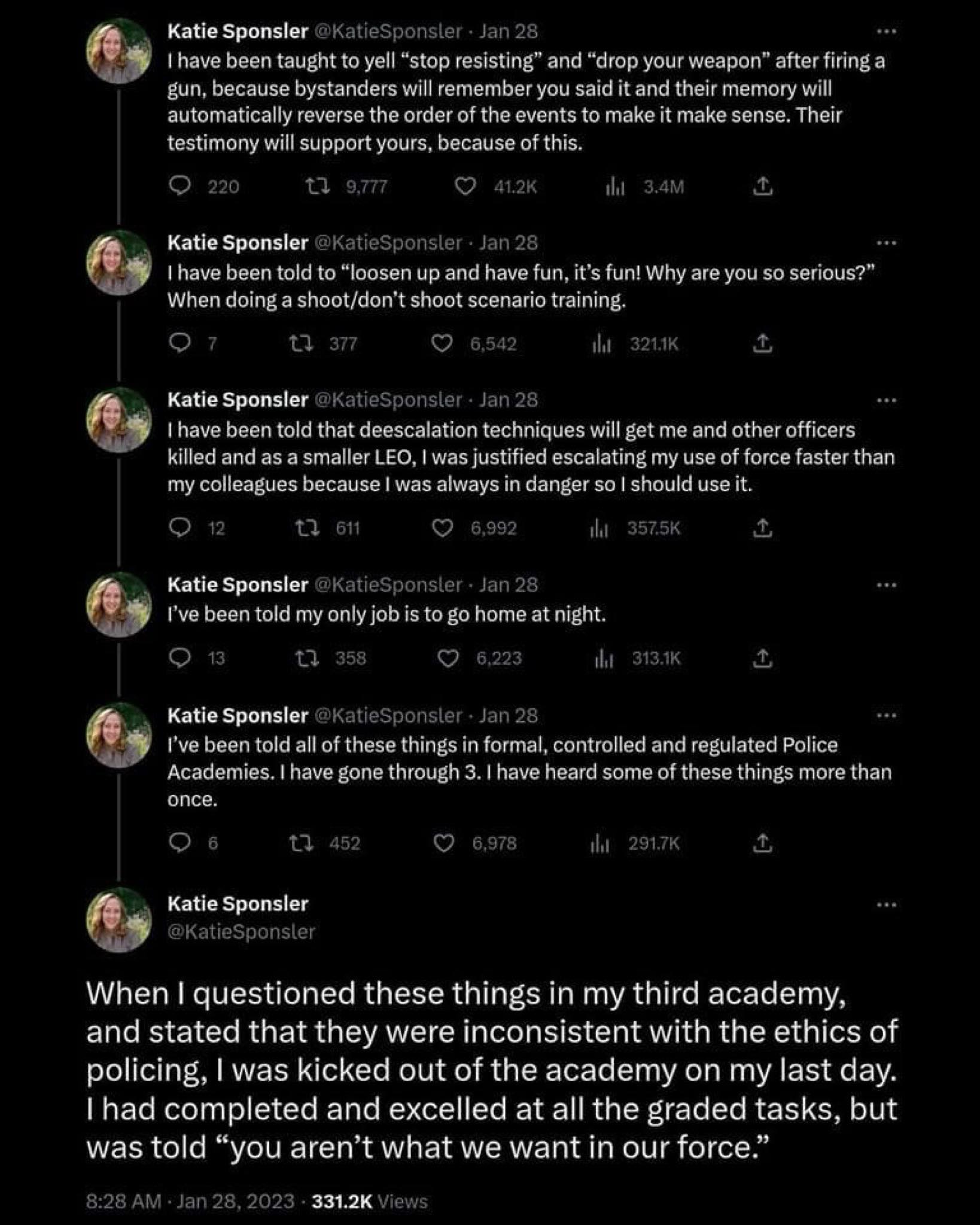this post was submitted on 25 Apr 2025
861 points (99.0% liked)
Political Memes
8104 readers
2473 users here now
Welcome to politcal memes!
These are our rules:
Be civil
Jokes are okay, but don’t intentionally harass or disturb any member of our community. Sexism, racism and bigotry are not allowed. Good faith argumentation only. No posts discouraging people to vote or shaming people for voting.
No misinformation
Don’t post any intentional misinformation. When asked by mods, provide sources for any claims you make.
Posts should be memes
Random pictures do not qualify as memes. Relevance to politics is required.
No bots, spam or self-promotion
Follow instance rules, ask for your bot to be allowed on this community.
No AI generated content.
Content posted must not be created by AI with the intent to mimic the style of existing images
founded 2 years ago
MODERATORS
you are viewing a single comment's thread
view the rest of the comments
view the rest of the comments

Fight police with capitalism!
I mean, if it works, it works. We've addressed a lot of societal problems via liability-based approaches. ADA ramps and disability access come to mind. It's not a perfect solution, but it's often a lot more tractable than trying to change the culture of an entire industry or profession. Activists spent decades trying to persuade architects and building owners to make their spaces accessible. But they simply didn't want to change. Designing public buildings with ramps and elevators can have real drawbacks, both practically and aesthetically, and the building industry didn't want to change. Congress could have made it illegal to not have ramps, a misdemeanor or felony, but who is legally responsible for a non compliant school? And does this sound like a law police would spend a lot of time enforcing? Are they going to devote resources to cracking down on inaccessible buildings?
In the end, it was simply easier to empower disabled people to be their own advocates. Let them sue building owners who won't make their structures accessible. No need to convince a prosecutor or bureaucrat that disability access is worth their time. The people most affected can lead the charge instead.
Overall, the approach has worked quite well. While not perfect, it has radically changed the degree of accessibility for disabled people to public buildings and spaces.